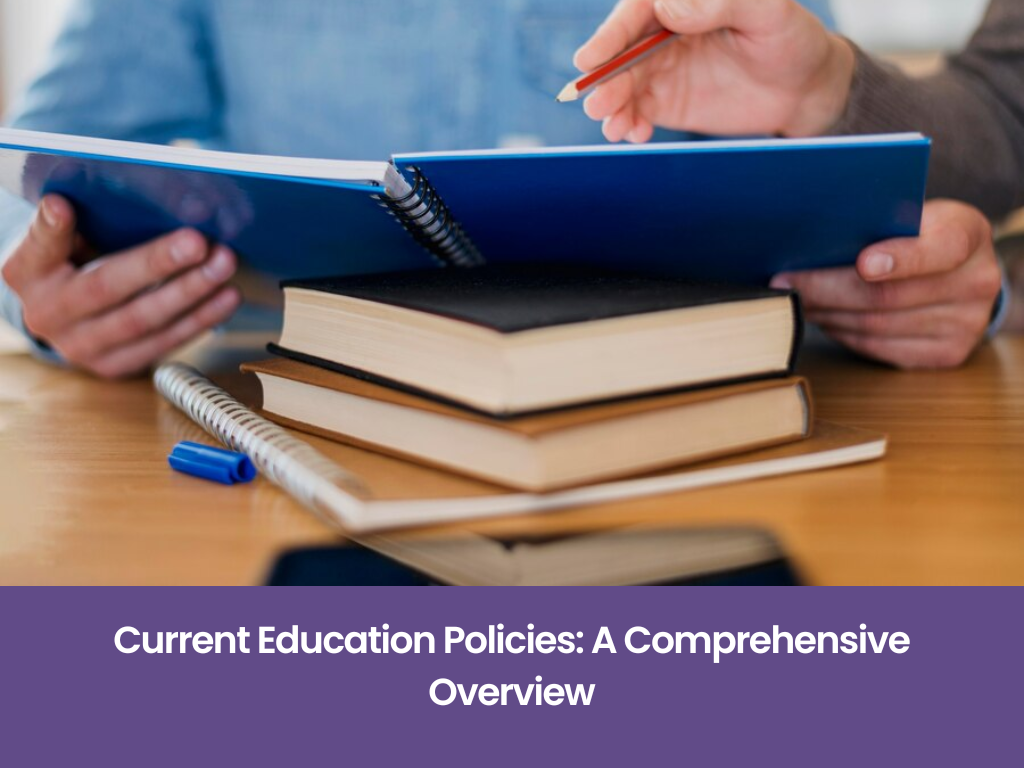Current Education Policies: A Comprehensive Overview
posted on Feb 22, 2024
Educational policies serve as guiding principles and frameworks that shape the educational experiences and outcomes of students. At BGS Vijnatham School, a commitment to excellence, innovation, and student-centeredness informs the development and implementation of educational policies.

Educational policies serve as guiding principles and frameworks that shape the educational experiences and outcomes of students. At BGS Vijnatham School, a commitment to excellence, innovation, and student-centeredness informs the development and implementation of educational policies. This article provides a comprehensive overview of current education policies in schools, examining key areas such as curriculum design, assessment practices, student support services, professional development, and community engagement.
Curriculum Design:
Standards-Based Curriculum:
School follows a standards-based curriculum that is aligned with national and international standards and benchmarks. The curriculum provides clear learning objectives, content standards, and performance expectations for each grade level and subject area. By aligning curriculum standards with academic expectations, it ensures that students receive a rigorous and comprehensive education that prepares them for success in higher education and beyond.
Integrated and Interdisciplinary Learning:
The curriculum at BGS Vijnatham School emphasizes integrated and interdisciplinary learning experiences that connect concepts across subject areas and foster critical thinking, problem-solving, and creativity. Teachers collaborate to design interdisciplinary units and projects that integrate multiple disciplines, such as science, technology, engineering, mathematics (STEM), humanities, and the arts. By engaging students in interdisciplinary learning experiences, it promotes holistic understanding, collaboration, and application of knowledge in real-world contexts.
Assessment Practices:
Comprehensive Assessment Framework:
School employs a comprehensive assessment framework that includes a variety of assessment practices to measure student learning and growth. Assessment practices may include formative assessments, summative assessments, performance-based assessments, project-based assessments, and portfolios. By using multiple assessment methods, school provides a comprehensive picture of student achievement, informs instructional decisions, and supports student growth and development.
Balanced Approach to Assessment:
It takes a balanced approach to assessment that values both accountability and creativity. While standardized tests and assessments are used to measure student proficiency and progress, creative assessment practices, such as project-based assessments, presentations, and portfolios, are also employed to foster student engagement, critical thinking, and problem-solving skills. By balancing accountability measures with creative assessment practices, it also ensures that assessment serves as a tool for learning and growth rather than just a measure of achievement.
Student Support Services:
Individualized Support:
School provides individualized support services to meet the diverse needs of students and promote their academic and personal growth. Student support services may include counseling, academic intervention, enrichment programs, special education services, English language support, and gifted education programs. By offering individualized support, and ensures that all students have access to resources and interventions that support their success and well-being.
Inclusive Practices:
Embraces inclusive practices that promote diversity, equity, and inclusion in the school community. Inclusive practices may include differentiated instruction, universal design for learning (UDL), co-teaching models, and accommodations and modifications for students with disabilities or special needs. By fostering an inclusive learning environment,l celebrates diversity, promotes belonging, and ensures that all students have equitable access to educational opportunities and support services.
Professional Development:
Continuous Learning for Educators:
School invests in professional development opportunities to support the ongoing growth and learning of educators. Professional development initiatives may include workshops, seminars, conferences, peer collaboration, mentoring, and coaching. By providing educators with opportunities for continuous learning and professional growth, it enhances teaching effectiveness, promotes innovation, and strengthens the overall quality of education.
Pedagogical Innovation:
It also encourages pedagogical innovation and experimentation among educators to enhance teaching and learning experiences. Educators are encouraged to explore new teaching strategies, instructional technologies, and assessment practices that engage students, promote critical thinking, and foster creativity. By fostering a culture of innovation, school empowers educators to adapt to changing educational landscapes and meet the diverse needs of students in today's world.
Community Engagement:
Partnerships and Collaboration:
School actively engages with parents, community organizations, businesses, and other stakeholders to enrich the educational experiences of students and strengthen ties with the broader community. Community partnerships may include internships, mentorship programs, service-learning projects, guest speakers, and collaborative initiatives. By fostering partnerships and collaboration, the school has expanded learning opportunities, promotes civic engagement, and cultivates a sense of belonging and pride in the school community.
Parent Involvement:
The school recognizes the importance of parental involvement in supporting student success and fostering a positive school culture. Parents are encouraged to participate in school activities, events, committees, and parent-teacher conferences. School also provides resources, workshops, and opportunities for parents to engage in their child's education, such as volunteering, attending seminars on parenting skills, and accessing support services. By promoting parent involvement, it strengthens the home-school partnership and creates a supportive and nurturing learning environment for students.
Conclusion:
At BGS Vijnatham School, educational policies are designed to promote academic excellence, innovation, and student-centeredness. From curriculum design and assessment practices to student support services, professional development, and community engagement, and prioritizes policies that support the holistic development and success of all students. By fostering a culture of continuous improvement, collaboration, and inclusivity, it remains committed to providing a high-quality education that prepares students for success in a rapidly changing world.